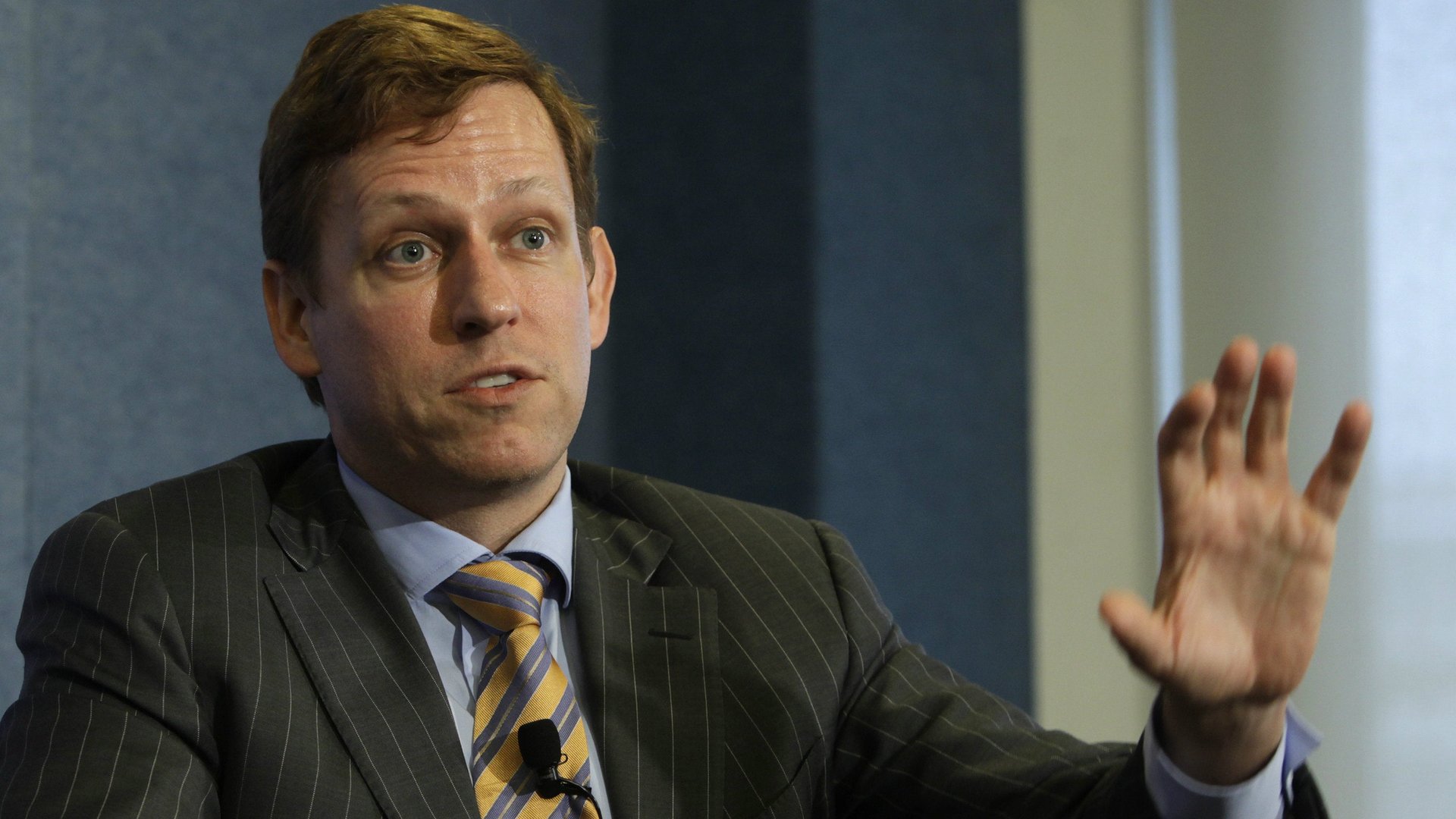Silicon Valley investor Peter Thiel reportedly tried to destroy Gawker while “supporting” press freedom
An investor with a track record of supporting press freedom has been secretly working to suppress it.


An investor with a track record of supporting press freedom has been secretly working to suppress it.
Peter Thiel, a Silicon valley venture capitalist whose bets include Facebook and Airbnb, has been secretly funding wrestler Hulk Hogan’s lawsuit against online media outlet Gawker, Forbes writes today (May 24). Thiel “has played a lead role in bankrolling the cases,” Forbes wrote, citing anonymous sources.
Hogan was awarded $140 million in damages in March. Although Gawker is appealing, the suit may set a chilling precedent for the future of media freedom in America, and if the appeal fails the award could shut down Gawker entirely.
Thiel is no stranger to making controversial endorsements. He is backing Donald Trump as delegate in California. He once funded the creation of a man-made, sovereign island for entrepreneurs to build business with minimal government interference. But his involvement with the Gawker case calls his into question his dedication to another pet project—the Committee for Protection of Journalists (CPJ).
In October 2009 the CPJ announced that Thiel had donated a “substantial” amount of money to the non-profit. The group funds legal expenses for journalists who are facing prosecution for their reporting, among other things.
“Technology can have positive and negative aspects. I want to help the CPJ defend the rights of online journalists,” Thiel told Silicon Valley Weekly.
Not, apparently, when those online journalists include those at Gawker, who have published hard-hitting reports on Walmart and unions in America, among other topics.
In October 2012, Gawker published an excerpt of a sex tape Hogan had made with his wife’s friend six years earlier. In April 2013, the media outlet received a court order demanding the tape’s removal from the site. Gawker did not immediately comply (they later replaced the embedded clip with a link), and a lawsuit ensued.
Hogan’s lawyer’s argued his privacy had been violated, although media advocates see a darker side.
“Hulk Hogan’s case is not really about privacy,” media ethics professor Jane Kirtley wrote in the New York Times. “He gave up his privacy when he decided to talk about the video in interviews with TMZ and Howard Stern. What he really wants is the right to control reporting about him. That’s every public figure’s dream.”
Thiel appears to be one of these public figures himself. In 2007, Gawker published a piece titled “Peter Thiel is Totally Gay, People” which posited that the investor remained closeted due to the overwhelmingly white, straight, male makeup of Silicon Valley’s investor community.
Gawker editor Nick Denton (also gay, along with the post’s author Owen Thomas) was the first to comment on the piece, writing “[Thiel] was so paranoid that, when I was looking into the story, a year ago, I got a series of messages relaying the destruction that would rain down on me, and various innocent civilians caught in the crossfire, if a story ever ran.”
Thiel came out to his friends in 2003 and has been public about his sexuality since at least 2010, according to a New Yorker profile. But he continued to remain a target for Gawker in the following years, particularly in Valleywag, its blog that skewered Silicon Valley culture.
Quartz reached out to the Thiel Foundation, CPJ, and Gawker but did not receive an immediate response from them.
Gawker’s penchant for knives-out reporting has earned it many detractors, both inside and outside the media industry. In recent years the company has softened its editorial tone, especially after a piece outing a Conde Nast executive caused critics to argue it went too far.
But it is hard to see how completely destroying the company would be good for journalism.